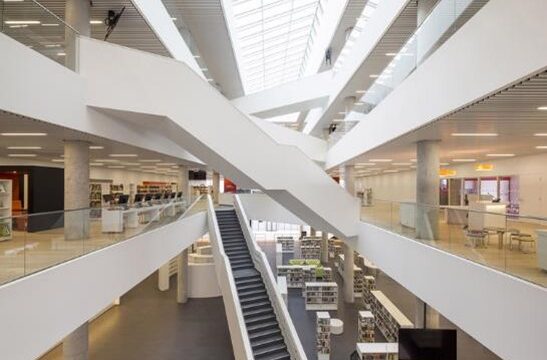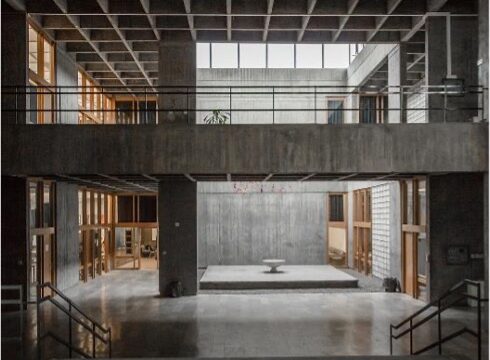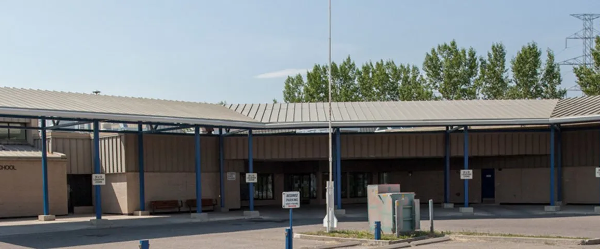Hope Blooms – Halifax
“Over the last ten years I have been studying sites of urban agriculture around the world. These spaces are often found in the cracks of the city – a small, abandoned piece of land that has been taken over by a community group for the purposes of cultivating food. One such space is Hope Blooms in the north end of Halifax. Located in between the now abandoned St. Patrick’s-Alexandra School and Uniacke Square this site consists of a kitchen and community space, solar greenhouse, and garden. The grouping of buildings loosely makes a plaza that hosts events such as markets or the annual Nocturne art festival. Beyond the buildings are other community assets including a playground and recreation equipment and solar charging benches and tables. Multiple visits to the site emphasise the evolving rhythms of the space, the widespread community use, and breadth of activities that take pace.
The garden evolves over the day: in the morning it is a space for work, in the afternoon children arrive and it is a place for education and play, in the evening people attend workshops, and at other times it is a place to sit and relax amongst the growing fruits and vegetables. It creates a room surrounded by nature within the city; formed by fragrant smells, dappled sunlight, and light breezes. It is possible to find both silence and activity within the garden, to be both part of the community and to find solace.
The garden has been formed by necessity and ingenuity over the years. It has something of the bricoleur about it, created from readily available materials, community relationships and resources. Experimentation and creativity are apparent as different strategies of planting are tested throughout the space. The effect is not haphazard or disorganized but rather a mosaic of ideas and opinions.
Hope Blooms has many experiences of quality within it. Most of all it is a multisensory community space that reflects the evolving culture of the place and the richness of everyday life.” (Booklet Positive Lived Experiences of Quality in the Built Environment 2023, p.95).
Google map link: https://www.google.com/maps/place/Hope+Blooms/@44.6550633,-63.5880209,17z/data=!3m1!4b1!4m6!3m5!1s0x4b5a23d4463a3009:0xff0254f0443c7954!8m2!3d44.6550595!4d-63.585446!16s%2Fg%2F11byp6s1n1?entry=ttu&g_ep=EgoyMDI0MDkxOC4xIKXMDSoASAFQAw%3D%3D
Discover similar lived experiences



